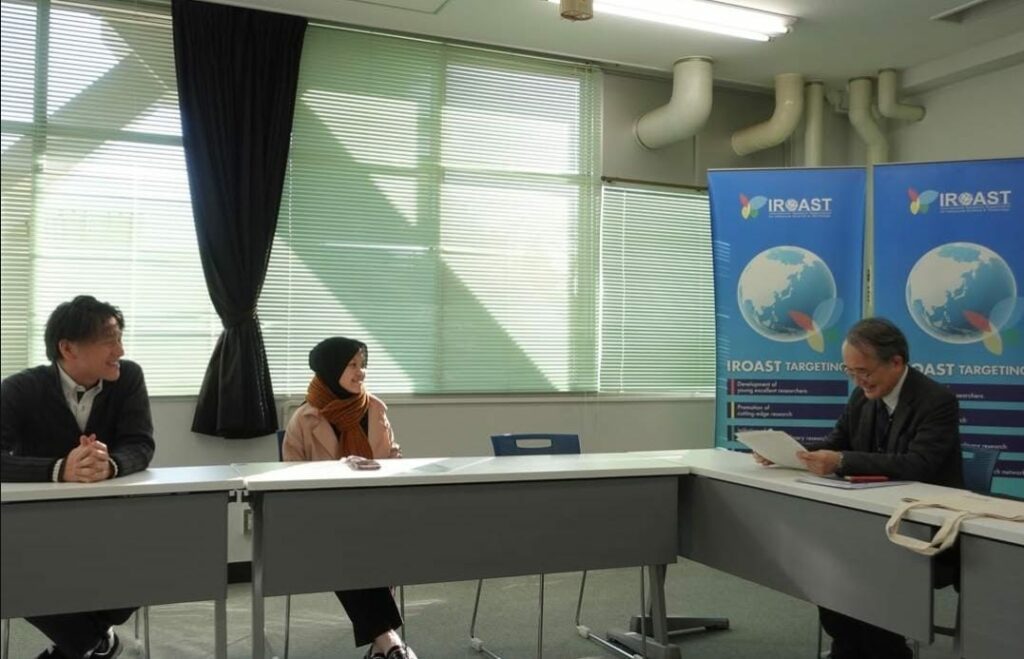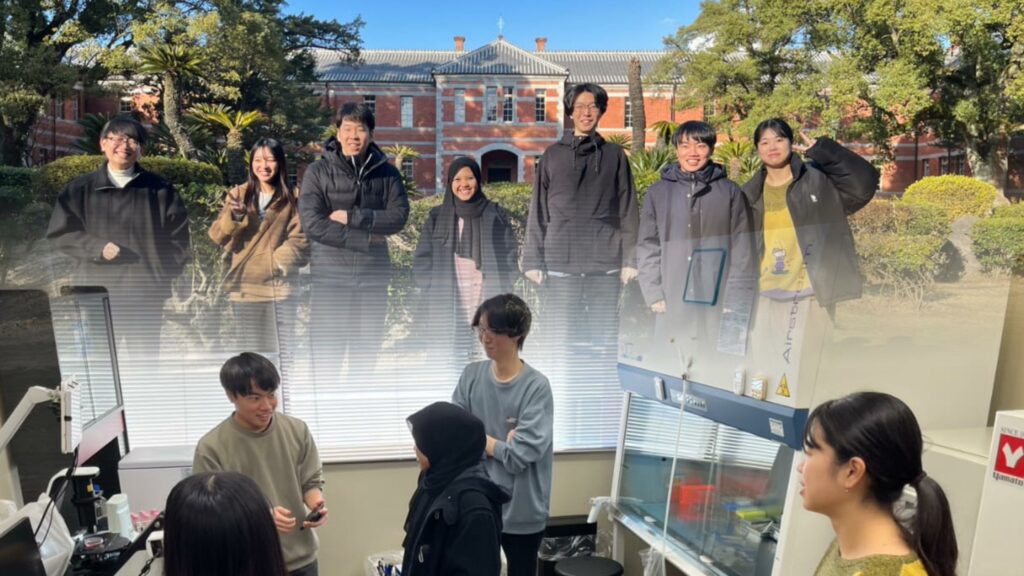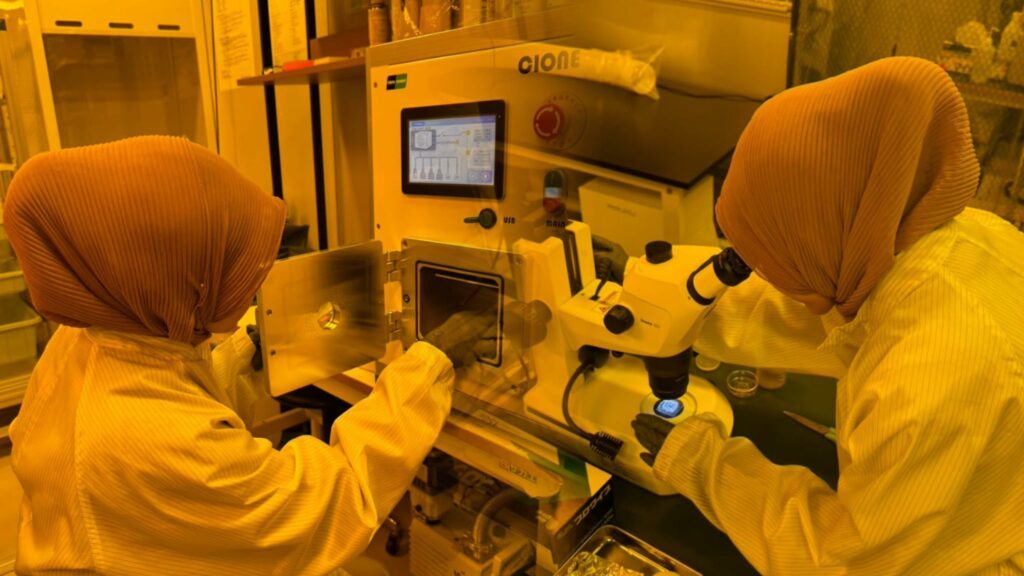Research in Japan: ITS Electrical Engineering Graduate Student Earns Scholarship at Kumamoto University
Faculty
Rohmah Hidayah, a graduate student in Electrical Engineering at Institut Teknologi Sepuluh Nopember (ITS), has been given a valuable opportunity to conduct research at Kumamoto University, Japan. Commonly known as Ema, she is currently in her third semester specializing in Intelligent Multimedia Networks and has received financial support from the International Research Organization for Advanced Science and Technology (IROAST) through a hybrid internship program.
The IROAST internship program is designed for graduate students aiming to pursue a doctoral degree or doctoral students seeking postdoctoral opportunities. This program allows participants to conduct research in laboratories at Kumamoto University under the supervision of a professor, with a maximum duration of two months offline in Japan and four months online, depending on the professor’s policy. Participants can select a professor whose research aligns with their field and must undergo a selection process to secure funding from IROAST.
Ema shared her experience in applying for the program. “The first step is to have a research plan. Once that is ready, we can choose a professor whose expertise matches our research field,” she explained. After that, students must obtain approval from their academic supervisor at ITS and prepare application documents, including a CV, research plan, motivation letter, and reference letter. These documents are then sent to the chosen professor.
Initially, Ema reached out to only one professor but did not receive a response. “After waiting for about a week, I decided to contact several other professors whose fields were still aligned with my research,” she explained. Shortly after, the first professor she had approached finally responded and invited her for an interview.
The main selection stage involves an interview with the respective professor. Even after being accepted, students must wait for the final decision on funding from IROAST. “The process took quite some time, but eventually, I secured funding along with several facilities outlined in the contract,” she added. Ema is scheduled to depart for Japan on January 5 to begin her offline research at Kumamoto University.
At Kumamoto University, Ema will research cancer cell signal processing using Deep Learning techniques, a topic closely related to Electrical Engineering, particularly in biomedical signal processing. “My task is to identify the most suitable Deep Learning method for detecting cancer cells and to learn how to collect cancer cell samples using laboratory equipment at Kumamoto University,” she explained.
The research outcomes will be determined based on her professor’s guidelines, with potential outputs including scientific publications or conference presentations, along with daily logbook documentation throughout the research process.
Ema also shared some tips for Indonesian students interested in applying for similar programs. She emphasized the importance of selecting a research field that aligns with the chosen professor’s expertise. Additionally, having flexible alternatives for research objects or subjects can increase the chances of acceptance.
“Don’t give up if one professor rejects your application. Try reaching out to other professors, as there are many available options,” she advised.
Latest News
-
Success Story of IoT Implementation: Salt and Drinking Water Production for Gili Genting Island
Gili Genting Island, Madura, is known for its high seawater salinity, ranking second in the world after the Dead
-
Faculty of Marine Technology – ITS Conducts Collaboration Exploration with Semarang Maritime Polytechnic (PIP)
Faculty of Marine Technology - ITS Conducts Collaboration Exploration with Polytechnic of Marine Science (PIP) Semarang Date: March 11,
-
The Journey of an Electrical Engineering Student to Success with Nogogeni ITS
The Nogogeni team from Institut Teknologi Sepuluh Nopember (ITS) once again demonstrated its commitment to innovation in energy-efficient vehicles.








